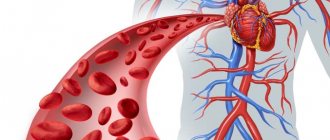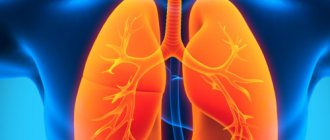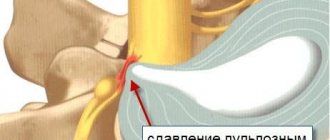Why does my throat hurt when swallowing?
The most common cause of discomfort when swallowing is viruses and infections. With a decrease in immunity, the pathological pathogen enters the mucous membranes of the larynx, causing irritation and inflammation. In addition, pain is provoked by:
- allergic reactions;
- angina;
- scarlet fever;
- flu;
- irritation of the larynx from cigarette smoke or alcoholic beverages;
- mechanical injuries;
- overstrain of the ligaments or muscles of the larynx;
- thyroid diseases;
- heart and vascular diseases - angina pectoris, myocardial infarction;
- osteochondrosis of the cervical spine.
To accurately determine the cause, it is important to pay attention to the accompanying symptoms. Dry indoor air can provoke cutting pain when swallowing saliva and a sore throat. If unpleasant sensations often appear during or after eating, accompanied by belching and a sour taste in the mouth, it is worth suspecting diseases of the esophagus.
Causes
To make a correct diagnosis, it is often enough for a specialist to know only about the nature and location of pain. Thus, burning acute pain, wave-like and spontaneous, located at the root of the tongue, will indicate the presence of neurological disorders. If the patient experiences a dull and aching pain, which is accompanied by a slight sore throat, then such symptoms indicate the presence of a fungal infection.
Acute sore throat, which is accompanied by tingling, is one of the most common symptoms in otolaryngology. Most often, this symptom occurs when
- injuries and the presence of foreign objects in the throat;
- inflammation localized to the tonsils and other parts of the pharynx;
- neuralgic disorders and neuroses.
In order to understand the causes of stabbing pain and make an accurate diagnosis, it is necessary to analyze all the accompanying symptoms.
The most common cause of a sore throat is injury or the presence of a foreign object. You can injure your throat by eating large pieces of solid food, by accidentally swallowing bones from fish and meat, or by various hard objects.
Often it is children who injure their throats when trying to swallow hard or sharp objects.
Therefore, if after eating, for example, fish, a severe sore throat suddenly occurs, then this symptom will be a typical sign of a violation of the surface of the pharyngeal mucosa. If there is an injury, then pain and the feeling of the presence of a foreign object will intensify when swallowing.
The first aid if a throat injury occurs is to remove the foreign object and immediately consult a doctor to avoid complications.
The danger of this kind of injury is that over time the pain may subside, creating the illusion of recovery, while the irritant remains in the throat. The only thing the patient experiences in such a situation is a slight tingling sensation. However, often at the site of the injury, be it a cut or puncture, a foreign object may remain, for example, a fragment of a bone, which in just a few days will cause the development of an inflammatory process. An abscess occurs around a foreign object, causing illness, which is accompanied by an increase in body temperature, deterioration in general health, headaches, and intense sore throat. If a throat injury has led to suppuration, then in this case most often surgical intervention and active antibiotic therapy cannot be avoided.
Diseases that are symptomatic of a sore throat
Each category of disease has its own characteristic symptoms. Doctors also identify a number of common signs, when they appear, you should seek help. These include:
- increased body temperature;
- dry debilitating cough;
- labored breathing;
- hoarseness of voice;
- headache;
- the appearance of goiter;
- increased sweating;
- severe weakness;
- loss of appetite.
Inflammatory processes
Laryngitis and pharyngitis are general terms that describe inflammation of the mucous membrane of the larynx and pharynx. Most often, diseases are viral or bacterial in nature, but there are a number of other causes of inflammation:
- voice strain associated with professional activities;
- ingestion of hot or irritating foods and drinks;
- alcohol abuse, smoking;
- breathing through the mouth;
- hypothermia;
- injuries to the larynx or pharynx;
- chemical burns of the mucous membrane;
- presence of a foreign body;
- consequences of chemotherapy or radiation therapy;
- air pollution.
A characteristic sign of inflammation of the larynx is acute pain when swallowing food or saliva. Many patients also have other symptoms:
- At first the cough is dry, then with sputum discharge;
- dry throat;
- soreness;
- feeling of a lump in the throat;
- redness of the mucous membranes, white coating on the palate;
- swelling of the soft tissues of the larynx;
- lacrimation;
- nasal congestion;
- redness of the eye sclera.
Articles on the topic
- Throat abscess - symptoms and signs, stages of development, treatment methods, complications
- Throat cancer - symptoms and treatment
- Throat lozenges for children and adults
Infectious diseases
More than half of the cases of pain when swallowing occur due to infectious diseases. The causative agents are various viruses (influenza, rotavirus, adenovirus) and bacteria staphylococcus, streptococcus. The inflammatory process affects soft tissues and mucous membranes (pharyngitis, laryngitis), adenoids and tonsils (tonsillitis or tonsillitis).
The clinical picture varies depending on the type of virus and the nature of the inflammation. Common symptoms of infectious diseases include:
- inflammation;
- pain when swallowing;
- rash on the skin;
- temperature increase;
- pale skin;
- fever, chills;
- general weakness;
- loss of appetite;
- runny nose, nasal congestion;
- sneezing;
- white coating on the tongue, tonsils, palate;
- enlarged mandibular or cervical lymph nodes;
- body aches;
- joint pain;
- nausea, vomiting, diarrhea.
Oncology
Malignant diseases of the throat include sarcomas, chondrosarcomas, and cancer. Tumors are caused by a number of reasons, among which the most common are:
- alcohol abuse;
- smoking;
- living in unfavorable areas;
- increased background radiation;
- human papillomavirus infection type 16;
- decreased immunity – HIV, AIDS;
- hereditary predisposition;
- genetic defects;
- gastroesophageal reflux.
A characteristic symptom of oncology is severe pain in the throat when swallowing and at rest. Other signs are also present. In the initial stages of the disease they are:
- soreness;
- dry cough;
- increased body temperature;
- general weakness, malaise;
- swelling of the lymph nodes;
- anemia;
- numbness of the face;
- subcutaneous hemorrhages.
As the cancer progresses and the tumor grows, other signs appear:
- hoarseness of voice;
- change in taste;
- sensation of the presence of a foreign body;
- difficulty swallowing;
- bleeding from the throat, nose, gums;
- shortness of breath, other breathing problems;
- unpleasant odor;
- headache;
- worsening sleep;
- toothaches;
- weight loss;
- stuffy ears.
Sexually transmitted diseases
Pain when swallowing can be a symptom of advanced sexually transmitted diseases. Common representatives of this group are chlamydia, gonorrhea, syphilis, and herpes. Pathologies are more common in women who engage in oral sex. In addition to discomfort during swallowing, the following symptoms are present:
- painful mouth ulcers;
- white plaque on the lips, tonsils, palate;
- burning, pain when urinating;
- bad breath;
- burning, itching;
- skin rashes.
Factors that increase the risk of illness
Sore throat, as a symptom, most often occurs in children
Certain factors can cause increased susceptibility to throat diseases. These include:
- Age. For example, in children from 5 to 18 years of age, throat diseases occur twice as often as in adults.
- Oral sex. Gonococcal tonsillitis that develops after oral sex can cause a problem.
- Smoking, like passive smoking, irritates the mucous membranes of the nasopharynx and mouth, which causes coughing and sore throat.
- A sore throat in the morning may be due to allergies.
- Stitching pain occurs due to the action of chemical irritants.
- Acute can result from burns, hypothermia or mechanical trauma to the mucous membranes of the larynx and pharynx.
- Chronic sinus infections can cause throat infections.
- The reason may be working or living in small, unventilated spaces. Bacterial and viral infections spread much more easily in crowded places.
- Lack of hygiene rules: the prevention of any infection is thorough hand washing.
- Weakened immunity.
How to determine the cause of pain in the throat when swallowing
To determine the cause, you need to consult an otolaryngologist. The specialist will listen to complaints, conduct an external examination and, depending on this, prescribe a number of studies:
- A blood test from a vein to detect HIV infection.
- Throat swab, bacterial culture to test the sensitivity of microorganisms to antibiotics.
- X-ray of the neck and chest. From the photo you can assess the location of the cervical vertebrae, identify lung diseases and other pathologies.
- Assessment of acid content in the esophagus to exclude gastrointestinal diseases.
- General blood and urine tests to detect inflammation.
Symptoms of spine spinal cord injury
The clinical picture of cervical osteochondrosis is very diverse:
- pain in the neck, in the back of the head, in the shoulders, in the arms;
- restriction of neck movements;
- weakness in the arms;
- nagging pain in the left half of the sternum;
- burning in the area between the shoulder blades;
- migraine;
- dizziness;
- weakness;
- impaired coordination of movements and gait;
- hearing and vision impairment;
- poor dental condition;
- discomfort in the throat;
- hoarseness of voice;
- snore;
- fluctuations in blood pressure;
- numbness of the face and tongue;
- chilly hands and tingling fingers;
- flickering of flies before the eyes.
Reference! The severity of symptoms depends on the stage of the pathological process.
Treatment of sore throat
To eliminate the unpleasant symptom, physiotherapy, massage and medications are prescribed. The choice of treatment regimen depends on the test results:
- If the sore throat was caused by a viral infection, antiviral drugs are prescribed: Amiksin, Acyclovir, Viferon.
- For cardiovascular diseases, thyroid diseases, osteochondrosis, treatment is aimed at eliminating the underlying disease.
- When identifying bacterial flora, antibiotics are used. The choice of group depends on the degree of sensitivity of the bacterial agents to the active substance.
- Oncology is treated with chemotherapy, radiation, and surgery.
- To relieve unpleasant symptoms, patients are prescribed lozenges with an analgesic effect, sprays, and rinsing solutions.
- For allergic reactions, antihistamines are used.
Traditional medicine
To effectively combat sore throat, the doctor prescribes a comprehensive treatment that is aimed not only at suppressing symptoms, but also at eliminating the immediate cause of the disease. Additionally, medications can be prescribed to enhance immunity, which will improve the body's protective functions and speed up the healing process.
Many diseases accompanied by such a symptom as a cutting sore throat are treated with antibiotics - these can be either injections or tablets. The drugs neutralize infections, inhibit inflammatory processes, and prevent the occurrence of complications. Antibiotics are prescribed for ailments caused by bacterial infections, for example, sore throat, recurrent otitis media, tracheitis, etc.
For chronic forms of infectious diseases that are fraught with serious complications, the doctor prescribes homeopathic medicines. They prevent the spread of bacteria throughout the body and help strengthen the immune system. Drugs and their dosage are prescribed individually for each patient. As a rule, homeopathic remedies are prescribed for chronic tonsillitis, pharyngitis, paratonsillitis, paratonsillar abscess, etc.
You can supplement the main treatment with special aerosols and lozenges, which quickly eliminate pain in the larynx and help clear the airways.
The remedies are presented in a wide range, and only the attending physician, familiar with the clinical picture of the disease and the characteristics of the patient’s body, can help with the choice.
What can you do at home?
For successful treatment, it is important to follow all doctor’s recommendations.
The following rules will help you alleviate your condition at home:
- Chew your food thoroughly. During illness, try to eat ground or crushed foods warm.
- Install a humidifier at home. It will help ease breathing if you have allergies or the body's reaction to dry air.
- Stop smoking and other bad habits.
- To soothe your throat, drink warm milk with honey.
When is it time to see a doctor
A person suffering from pain in the throat and neck area should immediately consult a doctor in the following cases:
- if there is a suspicion that a foreign body has entered the throat;
- if the pain is acute and does not go away within several days (neither medications, nor compresses, etc. help);
- if, in addition to pain, a cough with bloody or purulent sputum appears;
- if you experience difficulty breathing and loss of voice;
- if there is a sharp rise in temperature;
- if severe pain occurs in a small child.
Timely diagnosis and timely treatment will help prevent the development of serious complications. People who seek medical help at an early stage of the disease will be able to recover quickly and forget about the symptoms that torment them for a long period or even forever.
Folk remedies for sore throat when swallowing
With the permission of a doctor, in addition to medications, you can use decoctions and infusions of herbs. The following recipes will help with a sore throat:
- Brew a tablespoon of chamomile with a glass of boiling water. Leave for 30-40 minutes. Moisten a towel with a warm solution and apply to your throat for 10-15 minutes. Apply compresses 3-4 times a day until complete recovery.
- Squeeze the juice from 3 lemons. Mix with a glass of honey. Take medicine for colds, 1 tsp. 3 times/day.
- Mix 1 tsp. sage, calendula, chamomile. Fill with a liter of water. Bring the mixture to a boil. Cool to 65°C. Cover yourself with a towel and breathe in the steam for 10-15 minutes. It is recommended to do inhalations 2 times a day.
Neuralgic disorders and neuroses
Despite the fact that the entry of a foreign body into the pharynx and inflammatory processes such as pharyngitis and tonsillitis most often cause a stabbing pain in the throat, several more specific causes can be identified. For example, disorders, the essence of which is the presence of pathologies of the nerve responsible for sensitivity and motor innervation of the pharynx, back of the tongue, and inner ear. In this case, the inflammation will spread to the glossopharyngeal nerve. Since the nerve is paired, pain is often localized only on one side, affecting a certain half of the pharynx, tongue, one ear and one tonsil. With the development of glossopharyngeal neuralgia, a tingling sensation occurs, which is a signal to immediately seek medical help.
It should be noted that such a pathology is rare, however, if neuralgia occurs, it develops quickly and is accompanied by sharp paroxysmal pain. The first thing the patient experiences in this case is pain at the base of the tongue, which subsequently spreads to the pharynx, tonsil area, and often radiates to the ear. Symptoms occur unexpectedly and are triggered by normal talking, chewing or coughing. Despite the spontaneity of pain, the attack does not last long, usually no more than a few minutes.
Important! If a stabbing pain in the throat intensifies in the evening, appears suddenly and also disappears unexpectedly, such symptoms may indicate neuralgic disorders.
To prescribe effective and comprehensive treatment for pharyngeal neuroses, consultation with specialists is recommended.
Thus, stabbing pain in the throat can be a symptom of various diseases and lesions of the throat mucosa. Moreover, only a correct diagnosis guarantees quick relief from pain.










